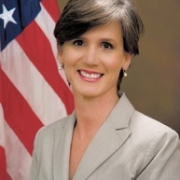Your Permanent Record: Blacklist for ethics gaining steam
 Bad ethics should not be forgotten in the new year- or any other- as bankers and regulators discussed creating an ethical blacklist for individuals working at regulated financial institutions, at the NY Federal Reserve‘s recent culture conference.
Bad ethics should not be forgotten in the new year- or any other- as bankers and regulators discussed creating an ethical blacklist for individuals working at regulated financial institutions, at the NY Federal Reserve‘s recent culture conference.
This signals new enthusiasm for a provocative proposal originally suggested in 2014 by Bill Dudley, President of the NY Fed: When an employee leaves a company, the organization would have a mandate to report information relating to his/her misconduct to a central database. Concerning hiring decisions, all firms would have a reciprocal duty to check the database against their potential hire list. The goal is to stem the tide of bad apples that bounce from firm-to-firm, negatively influencing stability, profits and planning.
To implement this new system, advocates will need to overcome many hurdles, including persuading Congress to provide a safe harbor from retaliatory claims against employers, ensuring the accuracy of the information, due process protections for individuals, and further defining the trigger for what is reportable “misconduct.”
If implemented, will the database reduce misbehavior in the industry or will firms and employees decide to look away, or handle informally, any witnessed misconduct?
As with implementation of any rule, it will depend on individuals adhering not just to the letter of the law but also its spirit. A working model already exists, as advocates point to the FINRA Broker Check, which provides a publicly accessible history of misconduct on individual brokers. Set up as a consumer service portal, it allows individuals to review the background of their advisors, and their firms. [ed: This could also be a potential tool for employers, although I have not yet found evidence of how often it is used by firms in hiring decisions (if you have any insights on this, please email me)]
A recent paper in the journal of the Center for the Study of Financial Regulation by Stephen G. Dimmock, William C. Gerken, and Nathaniel P. Graham sheds light on how Broker Check could be useful beyond its use by customers. Analyzing publicly available data about financial advisor fraud to understand whether there are correlations to firm-level behaviors, they found bad behavior is contagious.
More specifically, their results showed that firms that merged with a company who had a higher propensity for fraud became more fraudulent after the two company cultures converged. Their research focused on individuals with validated customer complaints that have resulted in settlements, though not disciplinary action by FINRA (and therefore they are not disbarred from the industry). They attributed the transmission of the contagion to the influence of career networks. Indeed, they found the network effect strongest among advisors of similar age or ethnicity. They recognized that “although only a small fraction of financial advisors ever commit fraud, many of the advisors who do are linked through their employment histories.”
Contextual influences— as our collaborators have noted— have powerful effects on individual behavior. If the FINRA database is a good blueprint for the new registry, this research by Dimmock, et. al. provides valuable policy implications relating to the behavioral challenges in connection with any new system.
Information and centralized access as contemplated by the new proposal is absolutely necessary, but we also need methods to change norms in troubled firms so they embrace the new systems and also use the information already available.
Further Reading
- Blog: Our review of the NY Fed Culture Conference
- Blog: Bad Apples, Bad Barrels or Bad Barrel Makers?
- Research Page: Contextual Influences and ethical systems design









